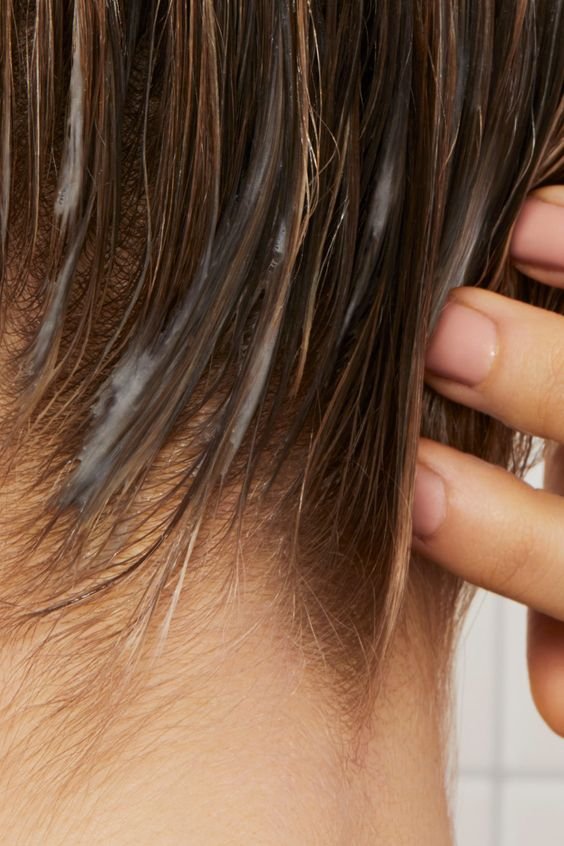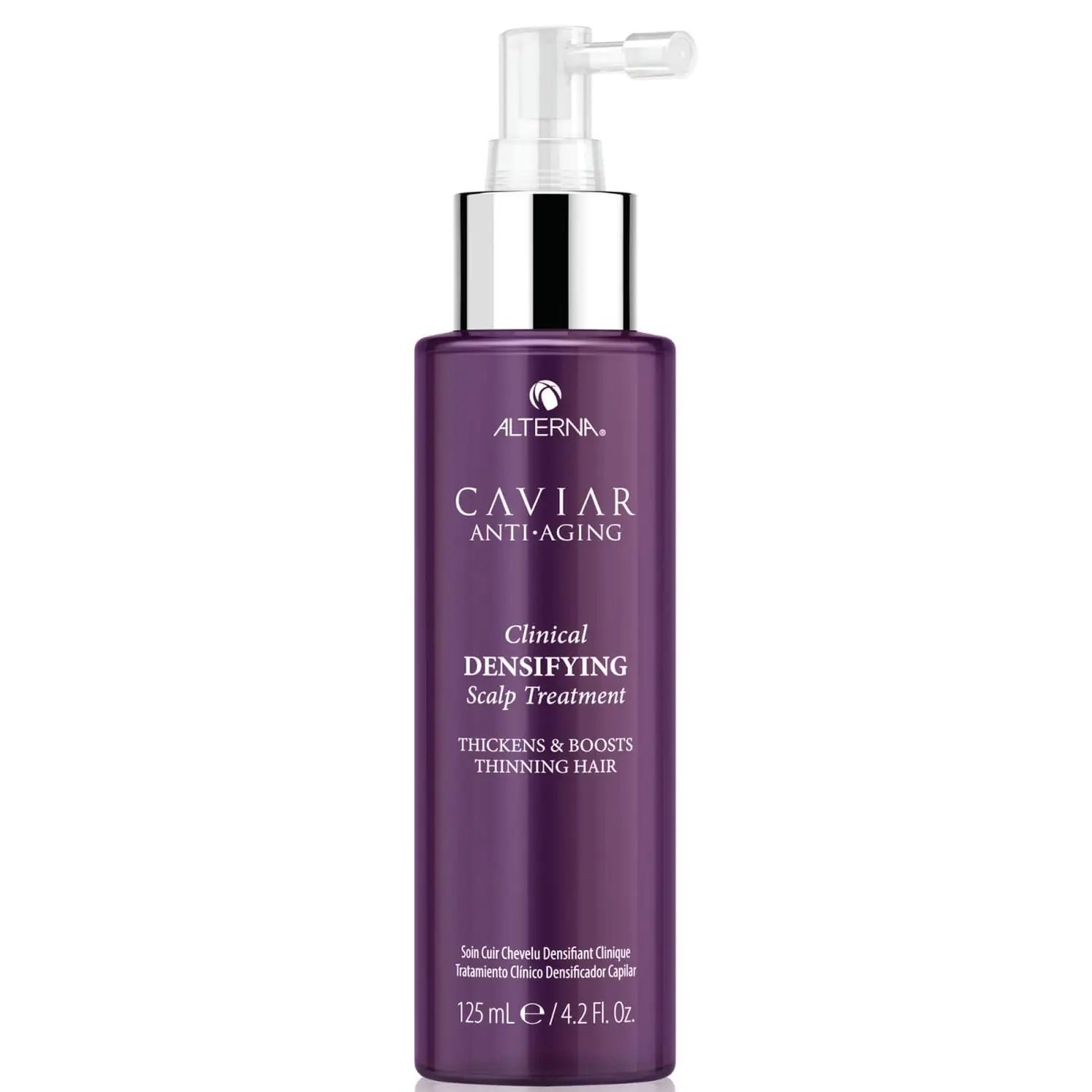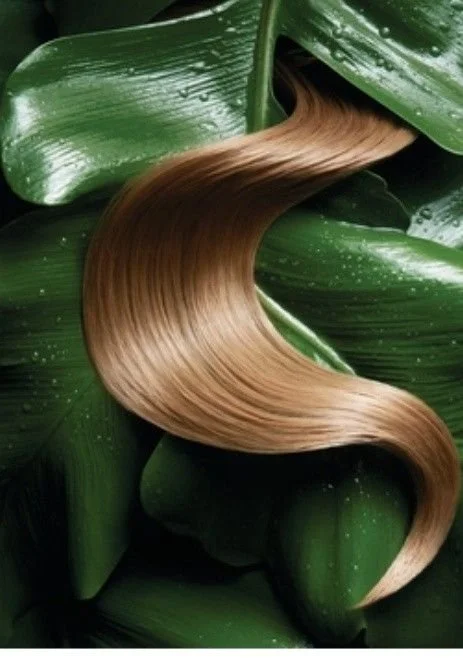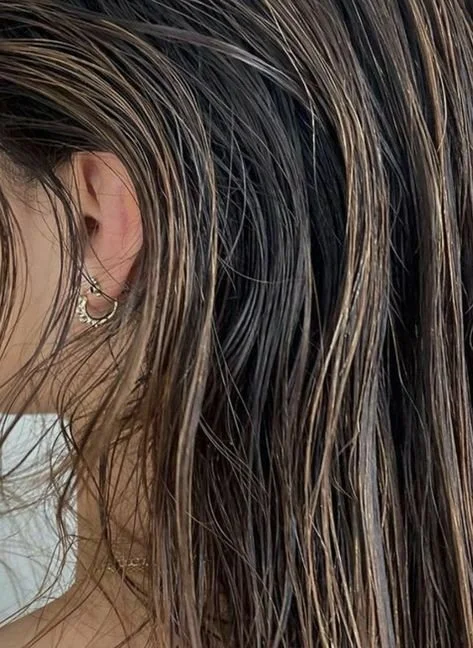A healthy scalp equals a healthy head of hair. Editor Trudi Brewer shares why scalp care is just as essential as haircare. Read on to learn more.
Image Instagram
Why are scalp serums suddenly on our radar?
If you’ve noticed a slew of scalp serums in your Insta feed lately, it’s for a good reason. Their magic lies in the ingredients that improve your scalp's and your hair's health. Dermatologist Kristina Collins and founder of the skincare brand foy by Dr Collins, says many of the scalp serums on the market today are designed with hydrating, calming, anti-inflammatory ingredients such as hyaluronic acid. “These ingredients can aid in stimulating blood flow and delivering oxygen and nutrients to our hair follicles. In addition, serums contain ingredients that are rich in antioxidants and have anti-fungal and anti-inflammatory properties.” These ingredients also help combat free radicals and balance your skin's pH, which can improve certain hair loss conditions. With the main goal of providing healthier hair growth, it's easy to understand why scalp serums are soaring in popularity.
Alterna Caviar Clinical Densifying Scalp Treatment, $52.
The longer your hair is, the older it is, so like anti-ageing skincare, your scalp needs nourishment to support the age of your locks. This brand is famous for restoring dry, ageing hair to its youthful glory, nourishing the scalp first. Stacked with rich caviar rich in omega 3 and fatty acids and vitamin B3, clover and nettle flower extracts, hydrolysed wool, soy and sunflower seed oils, rice protein, peppermint oil, and algae extract, these ingredients will boost scalp health and increase hair lustre within weeks.
How to use: A water-light leave-in spray-like serum you spritz into clean towel-drying hair, one section at a time. Massage in for a few minutes, then style your hair as usual.
Why Would You Need a Scalp Serum?
The main reason for scalp serums is to improve the quality of your hair and help treat hair loss and excessive shedding. According to Collins, a lack of blood circulation to the scalp can lead to hair loss and thinning. Which is where scalp serum ingredients kick into gear. Collins warns results can take time. “That recovery from hair loss and shedding issues is a process, mainly due to the phases our follicles need to go through to make a comeback.” Here’s a quick lesson: “The hair follicles cycle through phases of shedding, growth, and stagnation, and it takes time for enough hairs to get through enough growth cycles to show the results. One of the most common reasons people are unsatisfied with scalp serum treatments is because they stop after a month or two— this is simply not long enough to notice a change. Another issue is soothing irritations. "What many people think is dry skin can be a scalp condition called seborrheic dermatitis," says Collins. Who adds, “This requires treatment beyond a scalp serum and will include daily washing, antidandruff shampoos, and occasionally, prescription-based topical steroid serums and solutions."
The Ordinary Multi Peptide Serum for hair density, $39.
This leave-in, lightweight, water-based serum is stacked with caffeine, peptides (proteins), Chinese skullcap root (used in traditional Chinese medicine remedies for reducing hair loss), clover flower and camellia leaf extracts, oleanolic and lactic acids, and arginine. This blend of plant-based ingredients helps invigorate the scalp to promote thicker, denser, fuller-looking hair.
How to use: Massage a few drops into the scalp at night and leave in.
How do you use a scalp serum?
Depending on the formula and manufacturer’s instructions, apply a few drops on your fingertips, rub your fingertips together to warm up the product, and then massage your fingers into the scalp in small circular motions for a few minutes. Collins says, “You can use serums on wet or dry hair; if your scalp serum is a prescription, you may be able to use it twice daily, either after washing or without washing at all. Some people may find that scalp serums are best as a weekly or twice weekly treatment, so it is not so cumbersome," says Collins.
Kerastase Specifique Potentialiste Hair & Scalp Serum, $94.
The brand believes our modern lifestyles wreak havoc on our skin, including our scalp. Add harsh tap water, pollution, stress and a patchy diet, and your scalp will become unbalanced. So this serum was created to give instant comfort by balancing the effects of a dry, sensitive or oily scalp. How? It’s boosted with the antioxidant vitamin C to help neutralise those daily environmental stresses. At the same time, the prebiotic Bifidus feeds the good bacteria on the scalp to restore its delicate microbiome. It’s pricy, but its long-lasting, gorgeous fragrance is a reminder of its growth-boosting benefits.
How to use: Apply three drops, massage into a dry scalp and leave in the hair.
Scalp Serum vs Scalp Oil what’s best?
Typically scalp serums are more water-like in consistency, so they absorb into the skin quickly, whereas oils tend to be a bit heavier. Collins says, “Topical oils, especially prescription steroid oils, are excellent treatments for inflammatory scalp conditions. Oils are also helpful for hydrating thick or curly strands and individuals prone to dry scalps.” However, she adds, “For anyone with finer, thinner hair texture, oils can be way too heavy for use on the scalp; this is where a serum works well."
Kiehl’s Magic Elixir Scalp and Hair Oil Treatment, $78.
This blend of skin-loving oils includes rosemary leaf oil, which has invigorating properties. Also, avocado oil with rich omega essential fatty acids and safflower oil is boosted with vitamin E and omega-6 fatty acids. Each of these oils stimulates, nourishes and softens the skin and the hair.
How to Use: Shake first and then massage a small amount into a dry scalp, wait 10 minutes and then shampoo your hair.






















Safe, volume-boosting, brow dry extending, here the clean beauty buys.